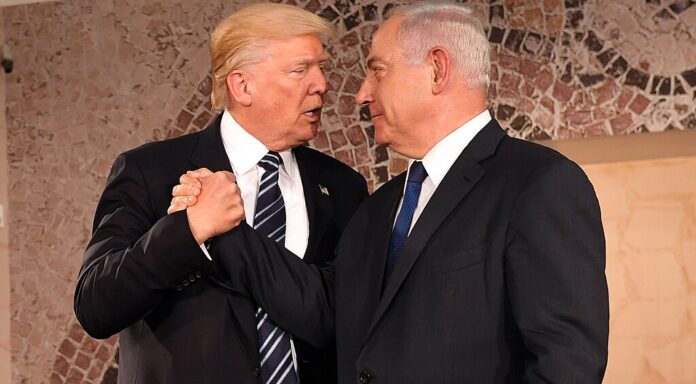Jerusalem braces for Trump’s unpredictable diplomacy as his Arab hosts prepare a peace plan that could alienate Netanyahu
With just 48 hours before U.S. President Donald Trump touches down in the Middle East, Israeli officials are on edge. Tensions are high in Jerusalem, where concern is growing that Trump’s visit — his first extended foreign trip of his second term — could spark a diplomatic clash with Prime Minister Benjamin Netanyahu over the war in Gaza.
Sources close to the Israeli government say Netanyahu fears Trump may back a peace initiative crafted by key Arab states — a proposal that would demand the removal of Hamas from power in Gaza, the immediate release of Israeli hostages, and the start of a regional reconstruction effort. On paper, it’s an ambitious plan. In practice, it could pit Trump directly against his Israeli ally if Netanyahu rejects the framework.
For now, Trump remains tight-lipped about what exactly he intends to propose. Officials within his administration describe the mission as “flexible,” while others privately admit it depends heavily on how receptive Gulf leaders are during the trip. Trump is scheduled to visit Qatar, Saudi Arabia and the UAE — all nations that wield significant influence over factions within Gaza and hold billions in reconstruction funds.
“The best-case scenario,” one senior U.S. diplomat told Haaretz, “is that Trump unveils a bold plan backed by the Arab world that ends the war, removes Hamas, frees the hostages, and opens a path to Palestinian rehabilitation.”
But the diplomat added, “The worst-case scenario is just as likely: Trump hears conflicting advice, presents nothing cohesive, the Israelis say no, and Trump simply loses interest.”
Jerusalem’s unease is not limited to policy. There’s also anxiety over Trump’s unpredictable style — and his fondness for personal flattery. Arab rulers are expected to shower him with ceremonial honours and potentially lucrative offers, including Qatar’s proposed donation of a $400 million Boeing 747 for use as Air Force One. That gesture has already sparked a political storm in Washington over foreign influence and personal gain.
Israeli officials worry that such gestures could shape Trump’s mood and tilt his focus away from Israeli security concerns. “There is real fear here that he’ll get distracted or seduced by grand promises, and pressure Israel to agree to something it cannot accept,” said one senior official in Netanyahu’s office.
Embed from Getty ImagesNetanyahu, who is navigating his own political survival amid domestic backlash over the Gaza war, is unlikely to publicly challenge Trump. However, sources say he will privately push back hard against any initiative that excludes Israeli oversight of post-Hamas Gaza or involves negotiations with Palestinian factions deemed hostile.
Meanwhile, Trump’s team insists he is coming with one goal: peace. “The President believes this is a window to end the bloodshed and secure a better future for all sides,” said a White House spokesperson. “He wants hostages home, Hamas out, and Gaza rebuilt under new leadership.”
But critics warn that without a firm plan and coordinated pressure on all parties, the visit could end up as political theatre with little substance. Trump’s record on Middle East peace is mixed — he scored a diplomatic win with the Abraham Accords, but failed to deliver a final settlement between Israel and the Palestinians.
Analysts say this trip is a test of whether Trump can broker a deal in one of the world’s most intractable conflicts — or whether, once again, a photo-op replaces a policy.
In Gaza, the suffering continues. More than 30,000 Palestinians have died since the war reignited, and dozens of hostages remain in captivity. As Trump prepares to land, all eyes are on what, if anything, he brings with him besides another round of headlines.
